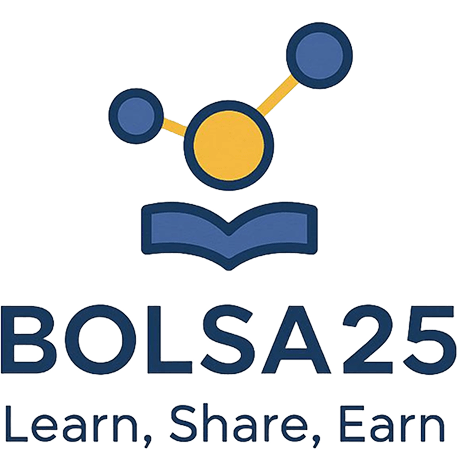Do you feel a knot in your stomach at the mere thought of speaking in front of a crowd? Does your heart race when you’re asked to present your ideas in a meeting? If so, you’re not alone. The fear of public speaking, or glossophobia, is one of the most common anxieties people face. Yet, in today’s interconnected world, the ability to communicate clearly, confidently, and persuasively is more valuable than ever. It’s a skill that can unlock professional opportunities, enhance personal relationships, and empower you to share your voice with the world. The most effective and structured way to develop this crucial ability is by enrolling in a high-quality public speech course. This guide will walk you through everything you need to know about how a dedicated course can help you improve your speaking skills fast, transforming you from a nervous novice into a confident communicator.
What is a public speech course?
At its core, a public speech course is a structured educational program designed to teach individuals the art and science of effective public speaking. It’s far more than just a series of lectures; it’s an interactive training ground where you learn, practice, and refine the skills needed to deliver compelling messages to an audience. Whether the “audience” is a single person in a job interview, a small team in a boardroom, or hundreds of people at a conference, the principles remain the same. A comprehensive course breaks down the complex process of communication into manageable components, providing you with a toolkit of strategies and techniques. Participants in a typical public speech class learn how to conquer anxiety, structure a coherent and persuasive argument, use their voice and body language to enhance their message, and engage with their listeners to make a lasting impact. It’s a transformative journey that builds not just skill, but profound self-confidence.

Why does public speaking matter today?
In an era dominated by digital communication, you might wonder if old-fashioned public speaking still holds relevance. The answer is a resounding yes—perhaps more than ever before. While emails, texts, and social media are efficient, they lack the nuance, emotion, and connection that spoken English communication offers. The ability to stand and deliver a clear, persuasive message is a powerful skill that sets you apart in virtually every aspect of life.
- Career Advancement: In the workplace, strong speakers are perceived as leaders. They can pitch ideas more effectively, lead teams with greater clarity, inspire colleagues, and represent their organization with poise. From client presentations to internal meetings, confident communication accelerates professional growth.
- Influence and Leadership: Whether you’re a community organizer, a business owner, or a team manager, your ability to articulate a vision and inspire action is directly tied to your public speaking skills. Great leaders are almost always great communicators.
- Personal Empowerment: Mastering public speaking is a profound act of self-development. It forces you to clarify your thoughts, face your fears, and step into a more confident version of yourself. This newfound confidence permeates all areas of your life, from social interactions to personal advocacy.
- Building Connections: A well-delivered speech or presentation can create a powerful human connection. It allows you to share stories, evoke emotion, and build trust with your audience in a way that written text simply cannot replicate.
Benefits of Taking a Public Speech Course
While you can learn about public speaking from books or videos, a structured public speech course offers a dynamic and supportive environment that accelerates learning and delivers tangible benefits. The hands-on practice, expert feedback, and structured curriculum create a powerful formula for rapid improvement.
Confidence building
This is often the most significant and immediate benefit. Fear of public speaking stems from the unknown—fear of judgment, of forgetting your words, of failing. A good English-speaking Course demystifies the process. By practicing in a safe, supportive setting with peers who share your anxieties, you gradually build resilience. Each small success, from delivering a one-minute introduction to a five-minute presentation, acts as a building block for your confidence. Instructors provide constructive feedback that focuses on improvement, not criticism, helping you reframe your relationship with speaking from one of fear to one of empowerment.
Improved communication and presentation skills
A public speech course goes beyond just speaking. It is, in essence, a comprehensive speech communication course. You learn the entire lifecycle of a presentation: brainstorming and organizing ideas, crafting a compelling narrative, designing effective visual aids, and delivering the message with impact. You’ll master the “how” of communication—modulating your voice for emphasis, using gestures that reinforce your points, making meaningful eye contact, and managing your time effectively. These skills are universally applicable, making you a more effective communicator in one-on-one conversations, team meetings, and formal presentations alike.
Professional and personal growth
The skills honed in a public speaking course are highly sought after by employers. Leadership, persuasion, and clear communication are at the top of the list for almost any role. Investing in this training is a direct investment in your career capital. Personally, the journey of mastering public speaking enhances critical thinking, as you must learn to structure logical arguments and distill complex information. It improves your listening skills, as you learn to read and respond to an audience. Ultimately, it empowers you to advocate for yourself and your ideas, whether you’re negotiating a raise, giving a toast at a wedding, or participating in a community meeting.
Types of Public Speech Courses
There are various formats for public speaking education, each with its own advantages. The right choice depends on your learning style, schedule, and specific goals. This dedicated public speech training can be found in several key formats.
Online public speech courses
The digital age has revolutionized education, and public speaking is no exception. An online speech class offers unparalleled flexibility, allowing you to learn from anywhere in the world. Modern platforms, like the ones used at Bolsa25, leverage live video conferencing to create highly interactive and engaging experiences. A key advantage of a speech course online is the ability to practice in a familiar environment, which can reduce initial anxiety. Furthermore, you get comfortable presenting through a screen—an increasingly vital skill in today’s world of remote work and virtual conferences. Small group formats in an online speech class ensure you still get personalized attention and ample opportunity to practice and receive feedback.
In-person training and workshops
Traditional in-person workshops offer the benefit of face-to-face interaction. Being in the same physical room as your audience and instructor allows for a different kind of energy and immediate feedback on physical presence and stage movement. These are often intensive, taking place over a weekend or a series of evenings. They are an excellent option for those who prefer a hands-on, immersive learning environment and have the ability to commit to a fixed schedule and location.
Specialized courses for leaders, students, and professionals
Beyond general courses, many programs are tailored to specific needs. There are advanced courses for executives focusing on crisis communication and media training, workshops for students centered on academic presentations and debate, and programs for sales professionals designed to enhance persuasive pitching. These specialized courses apply the core principles of public speaking to the unique contexts and challenges faced by different groups, providing highly relevant and immediately applicable skills.
Key Skills Covered in Public Speech Courses
A truly effective public speech course is a multifaceted program that covers a wide range of essential skills. It’s a holistic approach that addresses both the psychological and technical aspects of communication. Here are the key pillars you can expect to build.
Overcoming fear and stage fright
This is the first and most crucial hurdle. Courses provide proven psychological techniques to manage anxiety, such as deep breathing, visualization, and cognitive reframing. The core strategy, however, is gradual, repeated exposure in a supportive environment. By starting small and progressively tackling more challenging speaking assignments, you systematically desensitize yourself to the fear, replacing it with a sense of preparedness and control.
Structuring impactful speeches
A great speech is built on a solid foundation. A dedicated speech writing course module is often a key part of the curriculum. You’ll learn the classic three-part structure: a compelling opening that grabs the audience’s attention, a well-organized body with clear key messages supported by evidence or stories, and a memorable conclusion that reinforces your message and calls the audience to action. You’ll learn techniques like storytelling, using rhetorical questions, and leveraging data to build a persuasive and engaging narrative.
Voice modulation and tone
Your voice is your primary instrument. A comprehensive speech communication course teaches you how to use it effectively. This includes exercises to improve projection (speaking loudly enough without shouting), articulation (speaking clearly), and pace (varying your speed to maintain interest). Most importantly, you’ll learn about vocal variety—modulating your pitch, tone, and volume to convey emotion, emphasize key points, and keep your audience captivated from beginning to end.
Body language and eye contact
Non-verbal cues often speak louder than words. You’ll learn how to adopt a confident posture, use purposeful gestures that complement your message (rather than distracting from it), and move naturally on a stage or in front of a camera. Mastering eye contact is a key focus—learning how to connect with individuals in the audience to create a sense of conversation and build trust. This is a critical component of any credible conversation class online.
Audience engagement strategies
Public speaking is not a monologue; it’s a dialogue. The best speakers make their audience feel involved. You’ll learn a variety of techniques to achieve this, such as asking questions, incorporating interactive elements like polls or show-of-hands, using humor appropriately, and telling relatable stories. The goal is to transform your audience from passive listeners into active participants who are invested in your message.
Public Speech Course Excellence at Bolsa25
At Bolsa25 Academy, we understand that true communication mastery is built on confidence and practice. While our core focus is on elevating your English fluency, the principles of effective communication are universal. We integrate the core components of a world-class public speech course into our conversation-focused methodology.
Our approach is uniquely suited to help you conquer public speaking challenges. Here’s how the Bolsa25 method aligns with the best practices of public speech training:
- Live, Interactive Online Classes: Our courses are not pre-recorded lectures. They are live, dynamic sessions where you actively speak and engage. This format is the perfect environment for a modern speech course online, allowing you to practice presenting in real-time from the comfort of your home.
- Small Group Setting: Forget getting lost in a crowd. Our small group classes ensure you have ample speaking time in every session. This creates a safe, low-pressure environment to test out new techniques, make mistakes, and build confidence with a supportive group of peers.
- Personalized, Expert Feedback: Our instructors are trained to provide constructive, personalized feedback. They will help you with everything from pronunciation and grammar to the clarity and structure of your arguments—key elements of any successful speech.
- Focus on Real-Life Skills: We believe in practical application. Our curriculum is designed around real-world scenarios, from participating in a business meeting to telling a compelling story. This ensures the skills you learn in our public speech course are immediately useful in your professional and personal life.
Below is a sample speech course description of how these principles are applied:
Course Title: Confident Communication & Public Speaking:
This dynamic online speech class is designed for English learners who want to transform their speaking skills and confidence. Over 8 weeks, participants will move from foundational principles to advanced delivery techniques in a live, interactive small-group setting. The course focuses on practical application, ensuring you can immediately use your new skills in professional presentations, meetings, and everyday conversations.
A potential speech course syllabus would include modules on:
- Week 1-2: Building the Foundation & Overcoming Anxiety
- Week 3-4: Structuring Your Message & The Art of Storytelling
- Week 5-6: Mastering Vocal Delivery & Body Language
- Week 7-8: Audience Engagement & Your Final Capstone Presentation

Practical Tips for Success in a Public Speech Course
Enrolling in a public speech course is the first step. To truly maximize your growth, you need to approach it with the right mindset and habits. Here are some practical tips for getting the most out of your training.
Regular practice and feedback
Practice is non-negotiable. Seize every opportunity to speak, both inside and outside the classroom. Volunteer to go first. Practice your speeches in front of a mirror, record yourself on your phone, or present to friends and family. Crucially, be open to feedback. Listen carefully to the advice from your instructor and peers. Don’t be defensive; view every suggestion as a gift that can help you improve. A speech communication class is a lab—experiment, see what works, and refine your approach.
Using technology and tools for improvement
Leverage technology to accelerate your learning. Use your smartphone to record your practice sessions. Watching yourself back can be revealing; you’ll notice filler words (like “um” and “ah”), nervous habits, and posture issues you weren’t aware of. Use presentation software to create clean, professional visual aids. There are even apps that can analyze your speech for pace, volume, and use of filler words, providing instant data-driven feedback.
Continuous learning beyond the course
A great public speech course will give you the tools, but mastery is a lifelong pursuit. Continue to challenge yourself after the course ends. Join a local Toastmasters club to keep practicing in a supportive environment. Watch TED Talks and analyze what makes the best speakers so effective. Read books on communication and persuasion. Look for low-stakes opportunities to speak up in your daily life—ask a question at a town hall, offer to give a short presentation at work, or simply make a point to speak more in meetings. Every time you speak, you are practicing.
In Conclusion
The ability to speak confidently and persuasively in public is not an innate talent reserved for a select few. It is a skill that can be learned, practiced, and mastered. By enrolling in a well-structured public speech course, you are making a powerful investment in yourself—one that will pay dividends in your career, your personal life, and your overall self-confidence. You will learn to conquer fear, structure your thoughts, and deliver your message with impact and authenticity. You will find your voice.
At Bolsa25 Academy, we are committed to empowering you on this journey. Our unique online, conversation-focused courses provide the perfect platform to build both your English fluency and your public speaking prowess in a supportive, interactive environment. Stop letting fear hold you back. It’s time to unlock your potential and learn to speak with the confidence you deserve.
FAQs
The best public speech course depends on your individual needs and learning style. However, the most effective courses share key characteristics: they offer ample opportunities for hands-on practice, provide personalized feedback from an experienced instructor, and take place in a supportive small-group setting. For many, an interactive speech course online like the programs at Bolsa25 offers the ideal blend of flexibility, expert guidance, and a safe environment to build confidence and skills for the modern, digitally-connected world.
Learning public speaking is a three-step process: Learn the Theory: Understand the principles of structuring a speech, using vocal variety, and employing effective body language. Practice Consistently: This is the most critical step. You must actively practice speaking in front of others. Start small and gradually increase the challenge. Seek Feedback: Get constructive criticism from instructors, peers, or mentors to identify areas for improvement. The most efficient way to combine all three steps is by joining a structured program, such as a public speech training course or workshop.
A public speech class is a structured educational setting, either online or in-person, where students learn and practice the skills of effective public speaking. A typical class involves instruction on key topics like speech anxiety, content organization, and delivery techniques. The most important component is the practical application, where students deliver speeches and presentations and receive constructive feedback from the instructor and their classmates. It’s a laboratory for communication, designed to build both competence and confidence in a supportive environment.
The 5 P’s of Public Speaking refer to Planning, Preparation, Practice, Performance, and Passion, a strategic framework to create and deliver effective presentations. These principles emphasize the importance of structuring your speech, rehearsing it, engaging your audience, and delivering with enthusiasm to make a lasting and impactful impression.Which course is best for public speaking?
How to learn public speech?
What is public speech class?
What are the 5 P's of public speaking?

